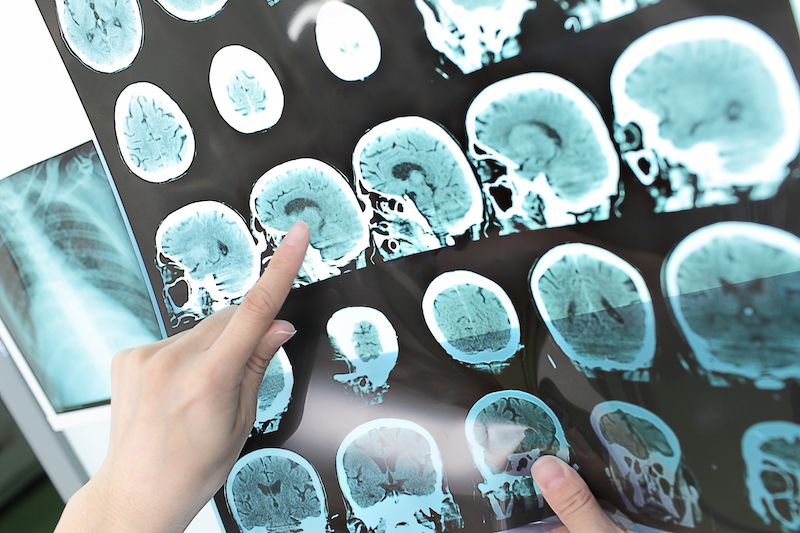

Columns/Blogs
Employee Wellness
Mental Health
Most of us don’t monitor our body chemistry: That’s a mistake
August 2, 2022
By
Bill Howatt
 Photo: Sudok1/Getty Images
Photo: Sudok1/Getty Images If you were to talk to someone about their body chemistry, issues like diabetes, typically a chronic disease, might come up. If you listen carefully, you learn how carefully they monitor body chemistry as their body functioning depends on how well they do it.
This daily management requires constant monitoring of sugar and insulin levels that directly impact their life and health.
The point of this micro-skill is that while chemistry plays a critical role in our quality of life and health functioning, most of us don’t get up each day with a plan to monitor our body chemistry. Without a plan, there is little to no attention to managing body chemistry. Nor is there awareness of the link between this action and mental and physical health.
Behavioural choices
Be mindful of your behavioural choices and medical health profile regarding mental fitness.
- Pro-health behavioural choices refer to daily micro-decisions to positively impact body chemistry, enhancing the quality of life and overall well-being. Mental and physical health are directly correlated. Good physical health increases your potential to have good mental health.
- Medical history profile refers to medical history, age, gender, health conditions and genetics. As humans age, our body chemistry changes. For example, ask a woman between 40 and 55 about the role of hormones in their overall experience. It is critical for mental fitness to actively work with your physician to screen your body chemistry through bloodwork to detect disease and get insight into areas that need attention, such as mineral or hormone deficits.
Behavioural choices and medical history profiles can directly influence body chemistry. Following are examples of chemicals that can positively and negatively impact body functioning:
- Water — Dehydration can impede performance, functioning, and health.
- Hormones — Male and female hormones can influence mood, energy and sleep cycles. Post 40 years old, monitor hormone levels regularly with your physician for optimal health.
- Neurotransmitters — Powerful chemicals like serotine and dopamine that impact mood levels are influenced by genetic potential (for example, some of us produce more than others) and diet. These powerful well-being chemicals mainly develop in our gut, not our head, which is why nutrition matters.
- Macro-nutrients — Minerals, vitamins, proteins, fats, and carbohydrates impact how well the body functions. Deficits based on behavioural choices and medical profiles can influence the body’s functioning and health.
- Cholesterol — Blood brings the body oxygen, and when the pipes are not clean, the body can be at risk. Heart disease and stroke are highly correlated with stress and diet. When the body makes too much or too little cortisol, it can increase the risk of a cardiovascular event (for example, a heart attack). Paying attention to stress levels is critical as stress releases chemicals that protect the body over the short and long term. When not regulated, stress can negatively impact longevity and health.
- Lifestyle choices — Sugar, caffeine, and alcohol are not natural chemicals and are not required by the body to function well. Some research suggests that moderate levels of caffeine (for example, black coffee) can support health, but caffeine can negatively impact the nervous system when not moderated. A sugar snack, drink, or extra cup of coffee, often consumed to self-soothe, has one goal: to influence mood.
Mental fitness plan for managing body chemistry
- Self-awareness — Become aware and accept the accountability daily pro-health behavioural choices can have on overall well-being. These daily micro-decisions may appear innocent. However, poor decisions made repeatedly can have an aggregated, negative impact on overall health and well-being.
- Make body chemistry management critical — Have a strategy within your mental fitness plan to ensure your body gets the right chemicals it needs daily. If unclear on the “what and how,” explore with a physician and a nutritionist recommended vitamins (such as multivitamins or vitamin D) for your age and health profile to supplement your diet. Combining macro-nutrition planning, healthy lifestyle choices, and recommended supplements allows for optimal body chemistry for your generic potential and medical health profile. It is helpful not to take supplements randomly but to get guidance because there can be risks of taking too much of a vitamin or mineral.
- Hydration — Drink at least three to four litres of clean water daily. When exercising or in hot weather, increase this volume to offset hydration lost through sweating.
- Annual medical check-up — Do cancer testing recommended for your gender profile and age and annual bloodwork to evaluate your body chemistry. Your medical history influences bloodwork tests. Make this a part of your yearly goal-setting and set appointments in a structured cycle (for example, a medical check-up every September).
- Seek medical attention when not feeling well — If you are feeling sluggish, moody, anxious, or just not yourself, the root cause may not be just your emotions. It may be because your body chemistry is not optimal. For example, your hormones may be out of balance.
- Monitor daily behavioural body chemistry choices — Create a checklist of the desired behavioural choices you have committed to making. Monitor them daily as a proven adherence strategy and to support habit development.

Dr. Bill Howatt is the Ottawa-based president of Howatt HR Consulting.
Print this page